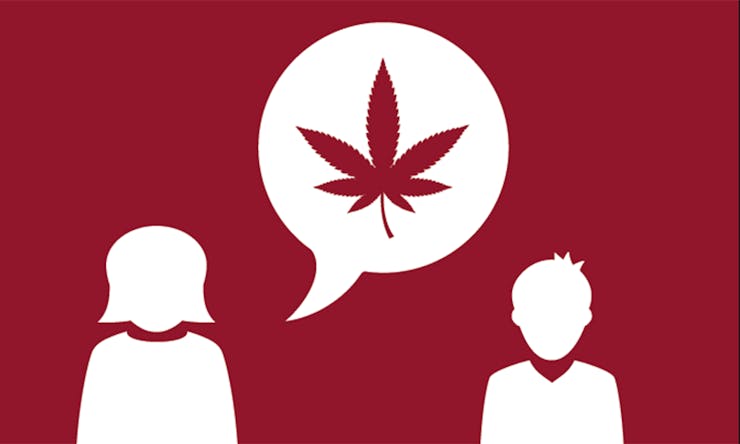When the federal government announced it was spending an additional $36.4 million over the next five years on cannabis education and awareness, educators realized they faced a big task. Not only would they have to step up efforts to get their message out—they’d also have to revise the message itself.
“No doubt about it, legalization makes our job more tricky.”
As Bill Blair, the Liberal government’s point man on the cannabis legalization file, explained on the day of the announcement, “When the substance is prohibited, when it’s illegal, most of that public education focuses on the legal consequences of breaking the law. But when the substance is not prohibited, parents, teachers and health professionals will begin to have conversations with young people [about] how they can make safer and healthier choices.”
“No doubt about it, legalization makes our job more tricky,” Marc Paris, executive director of Drug Free Kids (DFK), a Canadian charity that provides education about drugs, told Leafly after the October 31st announcement.
In June, DFK launched a national campaign to promote a booklet aimed at helping parents learn how to talk to their kids about cannabis. The Cannabis Talk Kit, which was developed in collaboration with Health Canada and the Canadian Centre on Substance Use and Addiction, has drawn positive reviews from parents and healthcare practitioners, said Paris.
Parents are advised how to engage rather than alienate their children while talking about cannabis—describing smoking pot as an unhealthy choice rather than a stupid one, for example.
“Our timing was very good,” he said of the booklet, which was released two months after the Trudeau government announced that it would legalize recreational marijuana in July 2018. Since then, more than 100,000 copies have been requested.
In addition to advising parents on how to engage rather than alienate their children while talking about cannabis—describe smoking pot as an unhealthy choice rather than a stupid one, for example—the document also notes that cannabis is a controlled substance under federal law, “meaning that growing, possessing, distributing and selling cannabis for recreational use are illegal.” The booklet warns parents and their children that “if [they] are found possessing cannabis by police, [they] may be subject to arrest, and possible criminal prosecution.” That will have to be revised.
The booklet also advises parents on what to say to their children today, a point in time when recreational marijuana might become legal. Once it is legal, that section will also have to be revised and expanded, said Paris.
When Bill C-45 is passed, marijuana will be more even accessible, he added, so it will be more important than ever to “build resilience in [Canadian] kids.”
Paris is heartened by Ottawa’s recent announcement and hopes that his organization will receive a share of the new funding. “We want to expand beyond general public awareness campaigns and go directly into schools,” he told Leafly. “But that would cost millions.”
His sentiment is shared by Anne McKiernan, a research and policy analyst at the Canadian Centre on Substance Use and Addiction. “It’s important to provide these resources, and it becomes more crucial as we inch closer to the legalization date,” she told Leafly.
McKiernan has seen an increasing demand for resources to educate Canadians about cannabis and foster awareness in recent months, and she is encouraged by the trend. With more buy-in across the board, educators are better able to get the word out, she said.
Shop highly rated dispensaries near you
Showing you dispensaries nearMcKiernan sees another advantage to legalization—it will enable educators to focus more on harm reduction. They will be able to advise people on how to use cannabis responsibly and won’t come under fire for endorsing the use of an illegal substance. “For example, an educator will be able to say to a young person, ‘If you’re going to smoke cannabis, choose a strain with lower THC levels.’” As she told Leafly, it would be similar to the way educators now talk to people about alcohol.
Last March, Health Canada started a digital campaign targeting parents and encouraging them to talk to their children about cannabis. The federal government says social media ads performed up to 75% above the industry average for click-through rates—driving increased traffic to cannabis content on the government’s website.
The next phase of the digital campaign, which will focus on young people themselves, will also rely heavily on social media. “The details of the campaign are still being determined but we know that social media will likely play a large role in reaching youth and young adults as will interactive events to reach this audience,” Health Canada told Leafly.
As for the due date of a revised Cannabis Talk Kit, DFK’s Paris says, “As soon as the [legalization] legislation is formally passed, we will revise and re-issue a new booklet in time for the launch of our second wave of our national campaign in September.”





